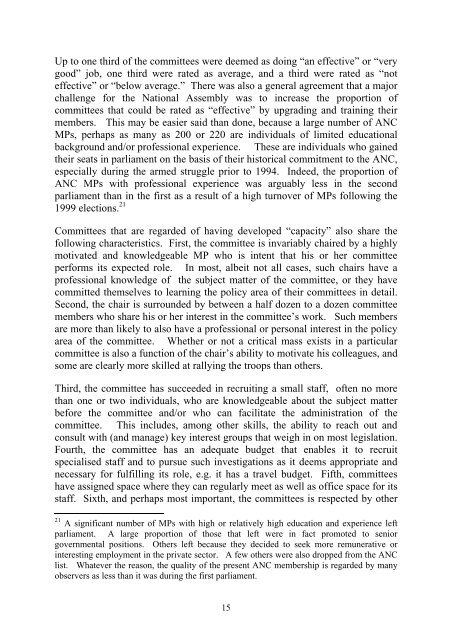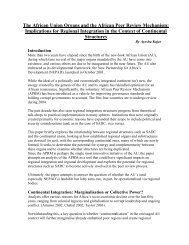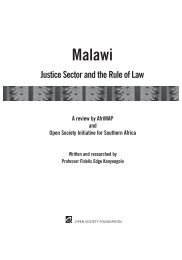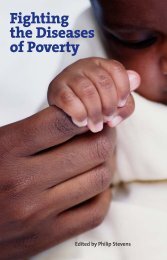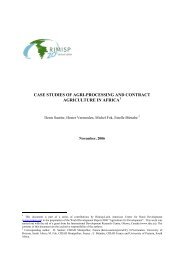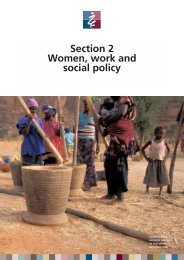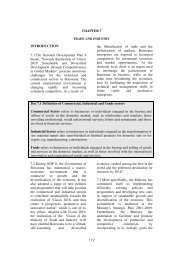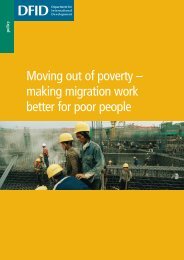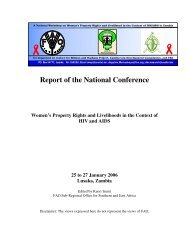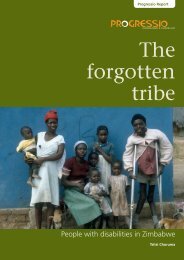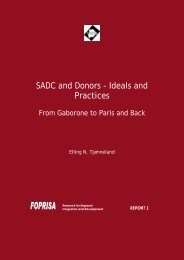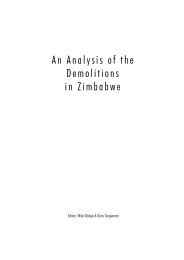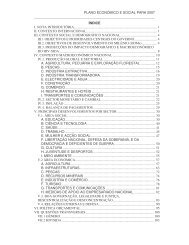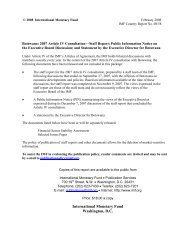400Kb ~ 2 min (33 pages) - SARPN
400Kb ~ 2 min (33 pages) - SARPN
400Kb ~ 2 min (33 pages) - SARPN
You also want an ePaper? Increase the reach of your titles
YUMPU automatically turns print PDFs into web optimized ePapers that Google loves.
Up to one third of the committees were deemed as doing “an effective” or “verygood” job, one third were rated as average, and a third were rated as “noteffective” or “below average.” There was also a general agreement that a majorchallenge for the National Assembly was to increase the proportion ofcommittees that could be rated as “effective” by upgrading and training theirmembers. This may be easier said than done, because a large number of ANCMPs, perhaps as many as 200 or 220 are individuals of limited educationalbackground and/or professional experience. These are individuals who gainedtheir seats in parliament on the basis of their historical commitment to the ANC,especially during the armed struggle prior to 1994. Indeed, the proportion ofANC MPs with professional experience was arguably less in the secondparliament than in the first as a result of a high turnover of MPs following the1999 elections. 21Committees that are regarded of having developed “capacity” also share thefollowing characteristics. First, the committee is invariably chaired by a highlymotivated and knowledgeable MP who is intent that his or her committeeperforms its expected role. In most, albeit not all cases, such chairs have aprofessional knowledge of the subject matter of the committee, or they havecommitted themselves to learning the policy area of their committees in detail.Second, the chair is surrounded by between a half dozen to a dozen committeemembers who share his or her interest in the committee’s work. Such membersare more than likely to also have a professional or personal interest in the policyarea of the committee. Whether or not a critical mass exists in a particularcommittee is also a function of the chair’s ability to motivate his colleagues, andsome are clearly more skilled at rallying the troops than others.Third, the committee has succeeded in recruiting a small staff, often no morethan one or two individuals, who are knowledgeable about the subject matterbefore the committee and/or who can facilitate the ad<strong>min</strong>istration of thecommittee. This includes, among other skills, the ability to reach out andconsult with (and manage) key interest groups that weigh in on most legislation.Fourth, the committee has an adequate budget that enables it to recruitspecialised staff and to pursue such investigations as it deems appropriate andnecessary for fulfilling its role, e.g. it has a travel budget. Fifth, committeeshave assigned space where they can regularly meet as well as office space for itsstaff. Sixth, and perhaps most important, the committees is respected by other21 A significant number of MPs with high or relatively high education and experience leftparliament. A large proportion of those that left were in fact promoted to seniorgovernmental positions. Others left because they decided to seek more remunerative orinteresting employment in the private sector. A few others were also dropped from the ANClist. Whatever the reason, the quality of the present ANC membership is regarded by manyobservers as less than it was during the first parliament.15


